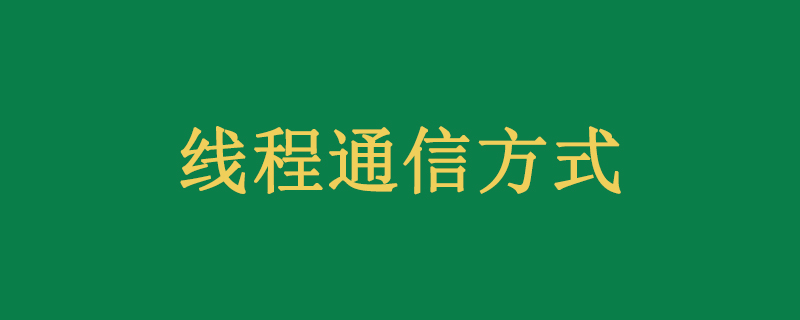

The communication methods between threads include the following:
1. Message queue is the most commonly used One, and the most flexible, allows complex and simple data structures to be transferred through custom data structures.
In Windows programming, each thread can have its own message queue (the UI thread has its own message queue and message loop by default, and the worker thread needs to manually implement the message loop), so messages can be used for inter-thread communication. Communication sendMessage, postMessage.
Define message#define WM_THREAD_SENDMSG=WM_USER 20;
Add message function declaration afx_msg int OnTSendmsg();
Add message mapping ON_MESSAGE(WM_THREAD_SENDMSG,OnTSM)
Add the implementation function of OnTSM();
Add PostMessage message Post function in the thread function
2. Use global variables
Threads in the process Memory sharing is a common communication method and interaction method.
Note: It is best to use volatile when defining global variables to prevent the compiler from optimizing this variable.
3. Use the event CEvent class to implement inter-thread communication
Event objects have two states: with signal and without signal. Threads can monitor events in the signal state so that they can be detected at the appropriate time. Perform operations on events.
1) Create an object of the CEvent class: CEvent threadStart; it is in a non-communicating state by default;
2) threadStart.SetEvent(); to put it in a communicating state;
3) Call WaitForSingleObject() to monitor the CEvent object
The above is the detailed content of What are the communication methods between threads?. For more information, please follow other related articles on the PHP Chinese website!
 The difference between threads and processes
The difference between threads and processes
 direct3d function is not available
direct3d function is not available
 How to decrypt bitlocker encryption
How to decrypt bitlocker encryption
 What does ps mask mean?
What does ps mask mean?
 Introduction to service providers with cost-effective cloud server prices
Introduction to service providers with cost-effective cloud server prices
 Can program files be deleted?
Can program files be deleted?
 How to remove the first few elements of an array in php
How to remove the first few elements of an array in php
 How to solve the 504 error in cdn
How to solve the 504 error in cdn